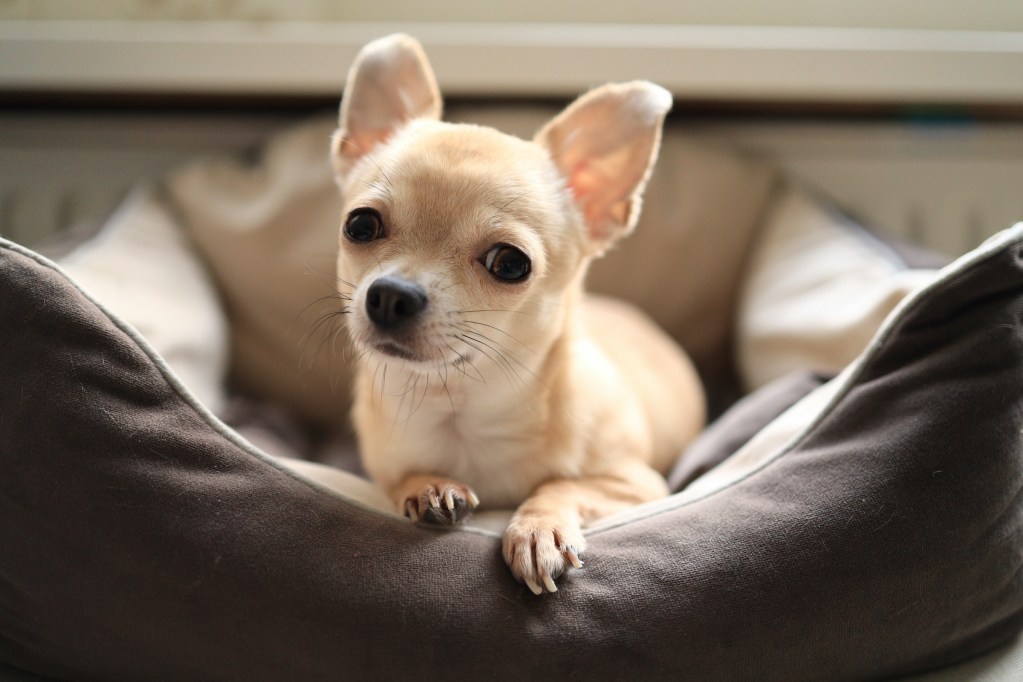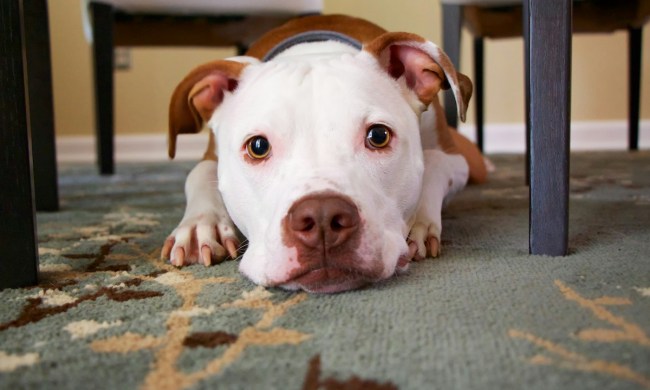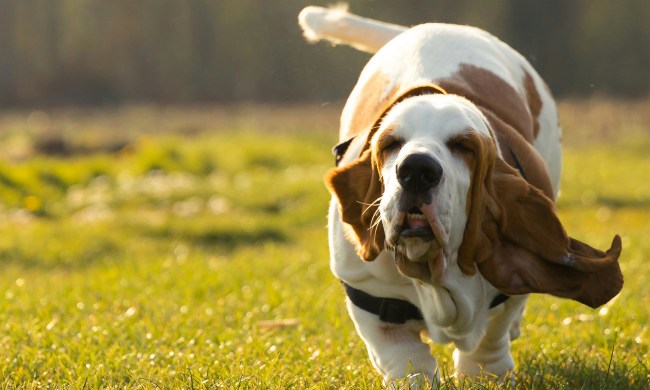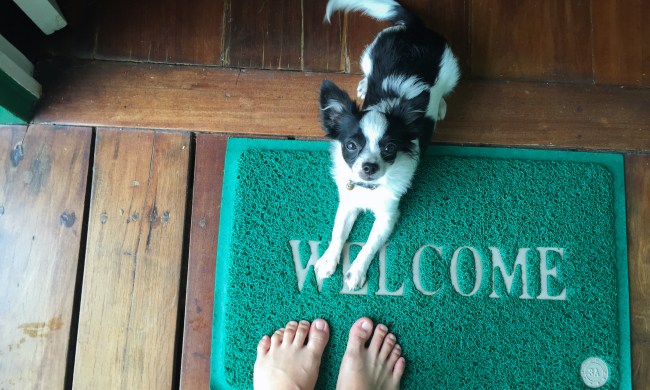The joys of having a new dog can come with many challenges, but there’s even more to learn when you bring home a puppy. Learning how to house-train a puppy isn’t always simple, and some breeds are easier to train than others.
Even though Chihuahuas are as tiny and as cute as can be, they are known for being difficult to potty train just like Bichon Frises. The American Kennel Club (AKC) describes Chihuahuas as “tiny dogs with huge personalities,” and this often includes a stubborn streak. As you can imagine, this can complicate house-training efforts.
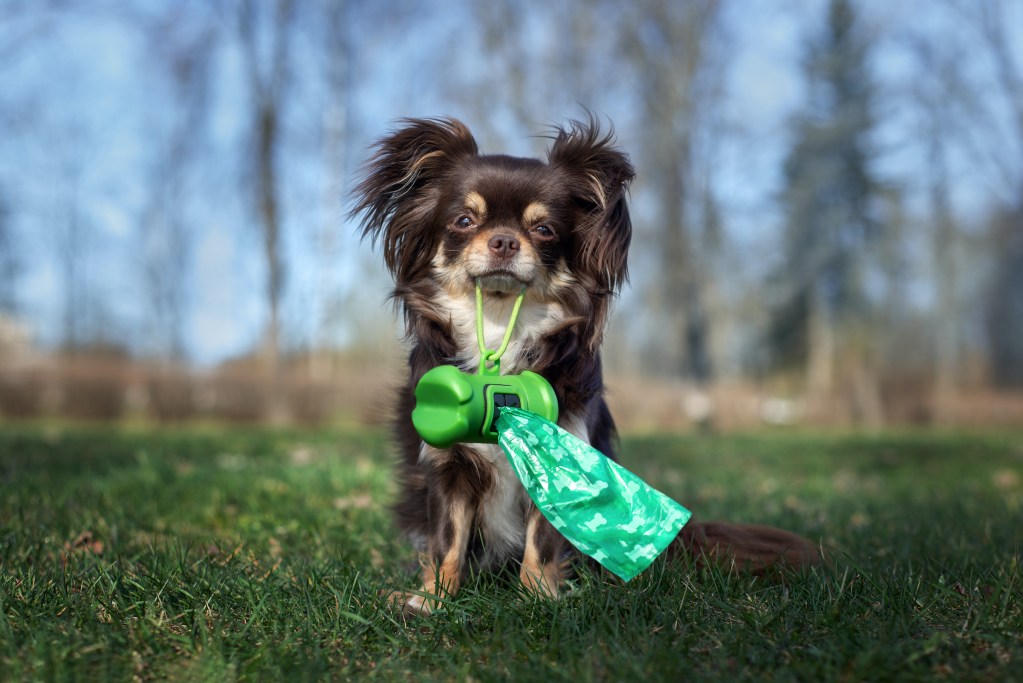
Reasons Chihuahuas can be difficult to house-train
In addition to being stubborn, there are numerous other reasons why Chihuahuas can be harder to potty train than other breeds. Understanding these hurdles can help when it comes to training your tiny dog.
Small dogs’ accidents can easily go undetected
Part of learning how to house-train a puppy is catching your dog in the act. When you do see your puppy peeing indoors, you should immediately redirect him to the appropriate place to potty. However, small dogs can easily slip out of sight, meaning their accidents frequently go undetected. When this happens, pet parents miss a valuable teaching moment. Additionally, accidents aren’t cleaned up immediately, encouraging the dog to eliminate in the same spot again.
Small dogs can get away with small accidents
Because tiny dogs have tiny accidents that are easy to clean up, some pet parents are more forgiving. However, according to the AKC, the quicker you teach your puppy that there is an “approved place to potty and that some places are off-limits,” the sooner you’ll have a fully housebroken dog.
Some dogs have trouble transitioning from pee pads
According to Veterinarian Elizabeth Robertson and the National Canine Research Association of America, some Chihuahuas trained to use pee pads may have difficulty transitioning to doing their business outside. This is because they are used to just going on the pad whenever they need to, and it takes time to learn that they have to alert pet parents when they need to go outside. One thing to try is taking a soiled pee pad to the outdoor space. When they use the potty pad outside, make sure to praise your dog and repeat the process.
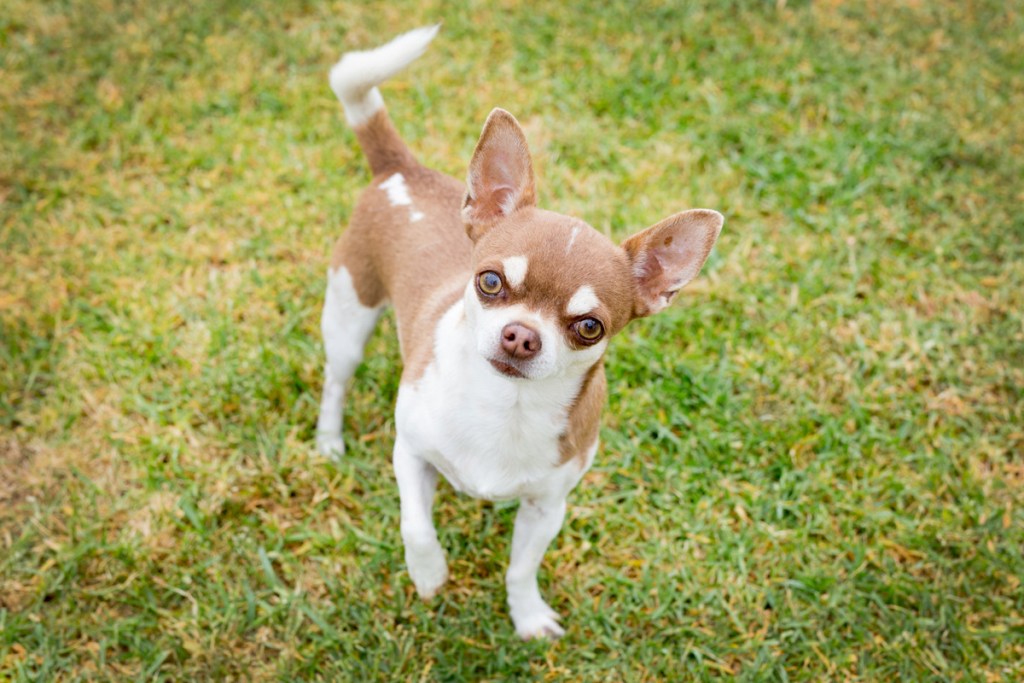
4 effective ways to house-train your Chihuahua
Constantly supervise your puppy to avoid undetected accidents
Constant supervision is key when housebreaking your puppy, say experts at the Chihuahua Club of America (CCA). Small puppies are like babies and frequently eliminate with little or no warning. You can never let your puppy roam unsupervised around your home.
“Prevention, supervision, and rewarding the desired behavior are the way to train your puppy,” according to the CCA.
Confine your puppy in a crate or pen when you can’t supervise them
When you can’t watch your puppy, he needs to be confined in an exercise pen or puppy-sized crate. Provide him with a bed at one end and a pee pad or newspaper at the other. Puppies don’t want to soil where they sleep, so they will naturally use the pad or newspapers when they need to. When training your puppy to go outside, you can take some poop or a piece of soiled newspaper to the desired outdoor spot. The smell will help him understand that he is supposed to do his business there.
Create a potty break schedule to keep your pup on a routine
Puppies do best on a regular schedule. This schedule teaches them that there are separate times to eat, to play, and to do their business. Feeding your puppy at the same times each day will make it more likely that he’ll eliminate at consistent times as well, making housebreaking easier.
When setting up a housebreaking routine, you’ll need to monitor daily events and your puppy’s daily habits. With a very young puppy, AKC experts say you can expect to take potty breaks around these times of day:
- First thing in the morning
- Last thing at night
- After playing indoors
- After spending time in a crate
- Upon waking up from a nap
- After chewing a toy or bone
- After eating
- After drinking
This schedule can be overwhelming early on, but by being consistent, your dog can be successfully housebroken.
Focus on praising your puppy for getting it right
You should expect that your dog will have a few accidents during housebreaking. After all, that is how they’ll learn! How you react to these accidents will play a big role in successfully house-training your dog, so follow these tips when accidents happen:
- Don’t overact if you catch your dog eliminating in the house. Simply interrupt the behavior with an “oops” or “no” and immediately take him outside to the correct bathroom spot. If he finishes his business there, praise him and give him a treat. Continue reinforcing correct behavior by rewarding your puppy every time he eliminates outside.
- If you find a soiled area in the house, don’t punish your dog. Yelling or doing something as cruel as rubbing his nose in it will only scare your dog and make him afraid to do his business in front of you. Instead, clean the area thoroughly with an odor-neutralizing product such as No Go or Nature’s Miracle. This will prevent your pup from potentially marking the same spot if they detect the scent of urine.
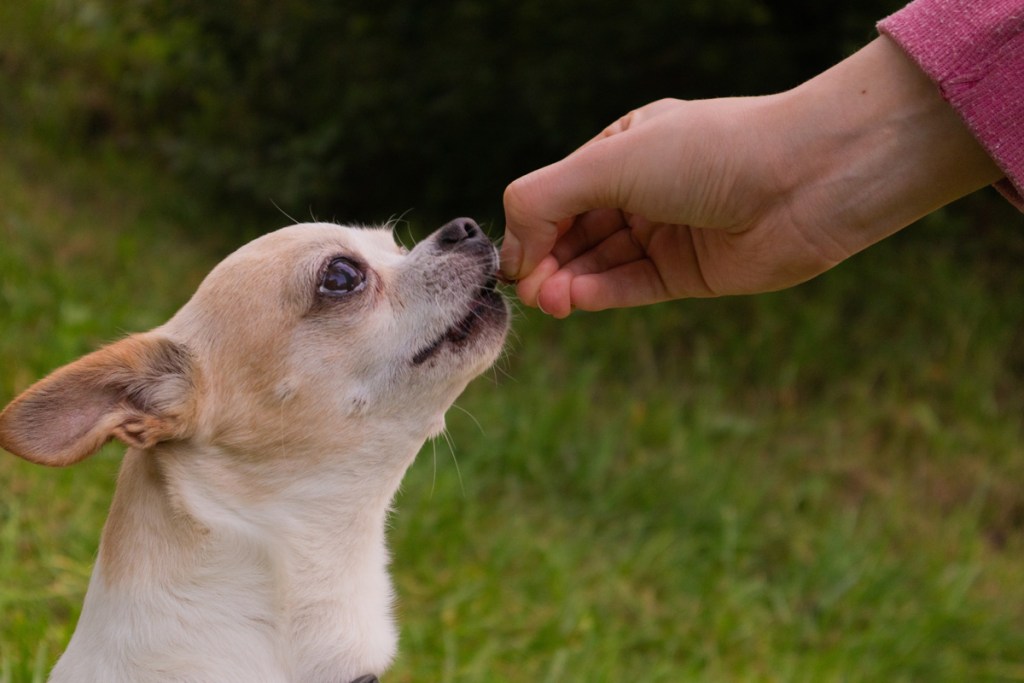
When trouble with potty training could mean a visit to the veterinarian
If your dog seems to be regressing in his training, don’t always assume it’s a behavioral issue. Of course, puppies will still have accidents while they’re getting used to a regular potty schedule, but an extended issue could be a potential sign of a problem. In rare cases, puppies may suffer from a spinal concern or genetic abnormality that complicates things. Fortunately, you should have several pre-set veterinary appointments to get your puppy vaccinated where you can bring up your concerns.
Accidents in an otherwise house-trained dog could mean there’s a health issue, such as a bladder infection or urinary tract infection. Robertson urges pet parents to visit the vet if they notice blood in the urine, straining when eliminating, or urine that dribbles out when a dog isn’t actively urinating.
If you’re just training a Chihuahua who isn’t used to proper potty training, you’ll just need to be patient and gentle. The same goes for learning how to potty train a puppy! If you remain vigilant in supervising your puppy, avoiding punishment, and rewarding him for desired behavior, you will eventually enjoy an accident-free home.
